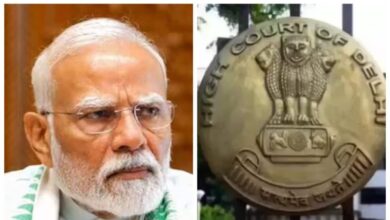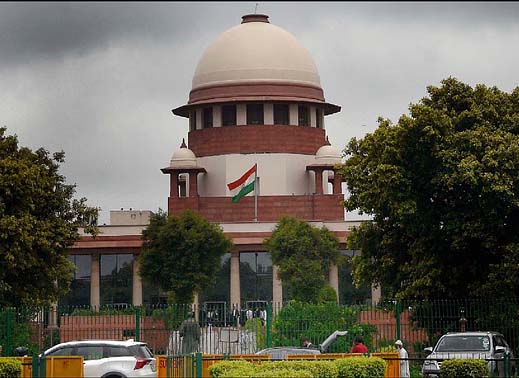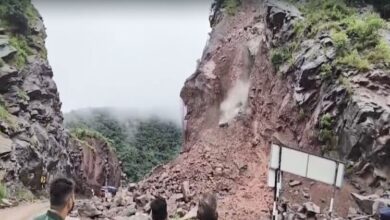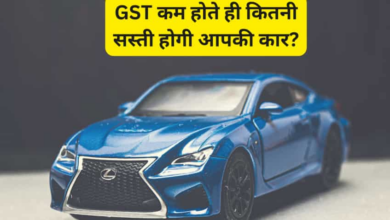पीएम मोदी का आग्रह: हमें दबाव में नहीं आना चाहिए, टैरिफ मुद्दे पर सहनशीलता जरूरी है।
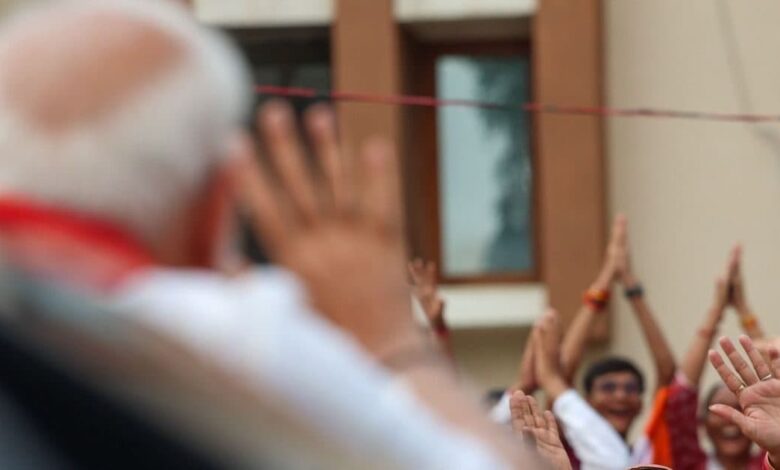
Prime Minister Narendra Modi has embarked on a two-day visit to Gujarat, where he was warmly welcomed upon his arrival at Ahmedabad airport. Following this, he set out for a significant roadshow, which took him to Khodam Maidan situated in the Nikol area of Ahmedabad. Here, he addressed a large public gathering and laid the foundation stones for development projects valued at approximately ₹5,400 crores. During his address, Prime Minister Modi subtly referenced international economic policies, suggesting a new era of self-reliance.
In his remarks, he emphasized the importance of small entrepreneurs, shopkeepers, farmers, and livestock breeders. Speaking from the land that echoes Gandhian principles, he encouraged these groups to prioritize their interests and assured them that his government would always support them against any pressures they might face. Modi reiterated that no matter the circumstances, they would expand their strength and resilience.
Modi expressed confidence in the government’s reforms, stating that significant changes are underway with the Goods and Services Tax (GST). He announced that citizens, especially small-scale industries, will receive a considerable gift before Diwali, as the reforms will lead to reduced taxes on various items. He envisioned this festive season as a time when both business class and families would experience a double boon of happiness.
His address also included pointed critiques of the opposition, particularly the Congress party. Modi invoked the legacy of Mahatma Gandhi, stating that the Congress has misused his ideals for decades, straying from the path of indigenous prosperity that Gandhi championed. He noted that the country must recognize the implications of these misinterpretations and emphasized India’s rapid progress in solar, wind, and nuclear energy, with Gujarat playing a pivotal role.
In another part of his address, while inaugurating several development initiatives in Ahmedabad, Modi asserted that India no longer tolerates terrorism and has taken significant steps to combat it. He highlighted that India not only confronts terrorist networks directly but also works on creating a global consensus against terrorism. He assured that the new projects would inject new energy into the progress and security of the country, especially Gujarat.
During the event, Modi made an insightful comparison between the two great figures of ‘Mohans’ – Lord Krishna, symbolized by the Sudarshan Chakra, and Mahatma Gandhi, who used the spinning wheel (Charkha) as a symbol of self-reliance and truth. He articulated that Krishna provided guidance on protecting the nation and society, advocating a fierce yet righteous approach to justice, and signifying how this spirit is mirrored in contemporary India’s decision-making.
As his roadshow continued through the streets of Ahmedabad, the response from the public was overwhelming. Large crowds gathered along the route, creating a festive atmosphere filled with excitement. Families, including women and children, stood for hours waving flags and banners as Prime Minister Modi passed. The energy was palpable, featuring traditional welcome gestures such as rangoli, flower showers, and rhythmic drum beats. The crowd’s enthusiasm was so contagious that chants of “Modi! Modi!” echoed from both sides of the street.
The roadshow not only highlighted the Prime Minister’s initiatives but also demonstrated the connectivity he has forged with the people of Gujarat. This engagement reflects an ongoing dialogue about governance, development, and a vision for a self-reliant India. The public’s animated response indicates strong grassroots support that Modi seems to cultivate through direct interaction.
In his closing remarks, Modi reaffirmed the significance of collective efforts in nation-building and reiterated that his government’s primary focus would remain on the welfare of the common citizen, particularly those involved in agriculture and small businesses. By fostering a conducive environment for growth and development, he aims to portray a government that is proactive and responsive to the needs of its citizens.
The visit serves as a crucial juncture in Modi’s larger narrative of building a robust, self-sufficient India, inviting citizens to partake actively in this transformational journey. Through various initiatives discussed, he is positioning Gujarat as a hub of progress and innovation, leveraging local resources and talent to meet the challenges of modern governance.
As the people gathered to witness their leader, the event not only marked a celebration of development but also signified the unity and resolve of Gujaratis in progressing together. The roadshow and inaugurations are not just ceremonial but serve as reaffirmations of the government’s commitment to elevating the socio-economic landscape of the region.
Through this journey, Modi’s rhetoric combines aspiration with accountability, aligning the government’s trajectory with the hopes of the populace. This vibrant interaction reaffirms the trust and expectation people have from their leadership, setting a framework for future engagements and initiatives aimed at ensuring inclusive growth and prosperity for all.
In summary, Prime Minister Modi’s visit to Gujarat underscores the administration’s drive for infrastructural development and economic empowerment of the people. Through engagements like the roadshow, he seeks to create a dialogue that resonates with grassroots realities while advocating for a future that embraces both tradition and innovation. The endeavor reflects a broader vision of a nation that draws strength from its diverse qualities and harnesses them towards a common goal of advancement and security.


